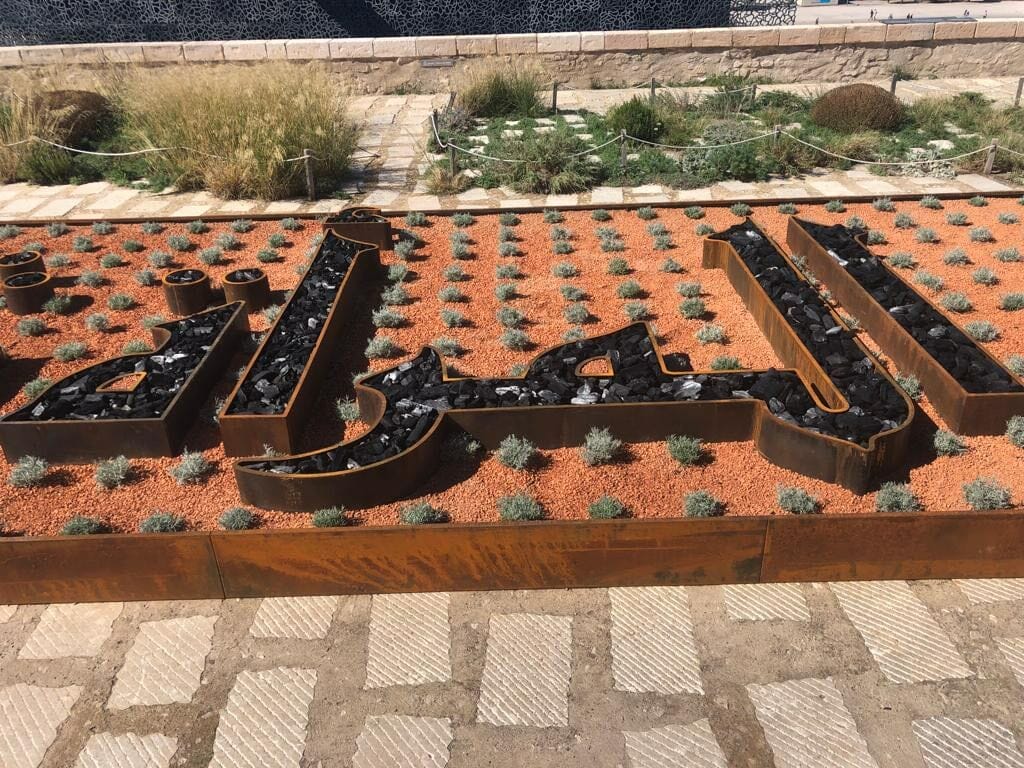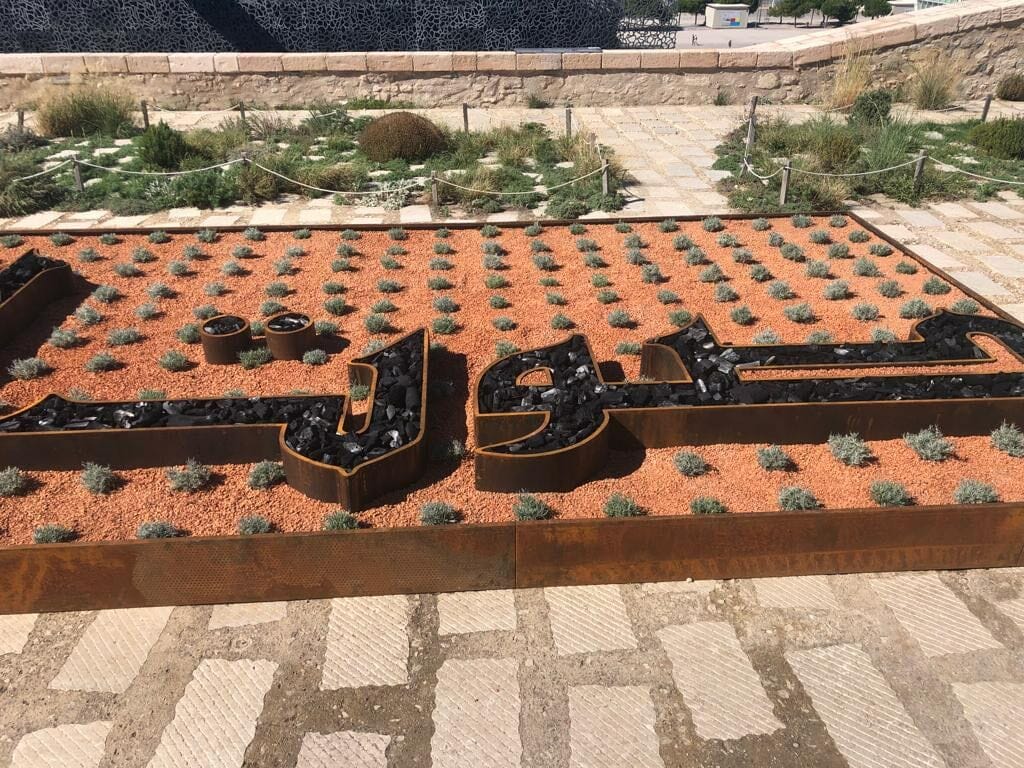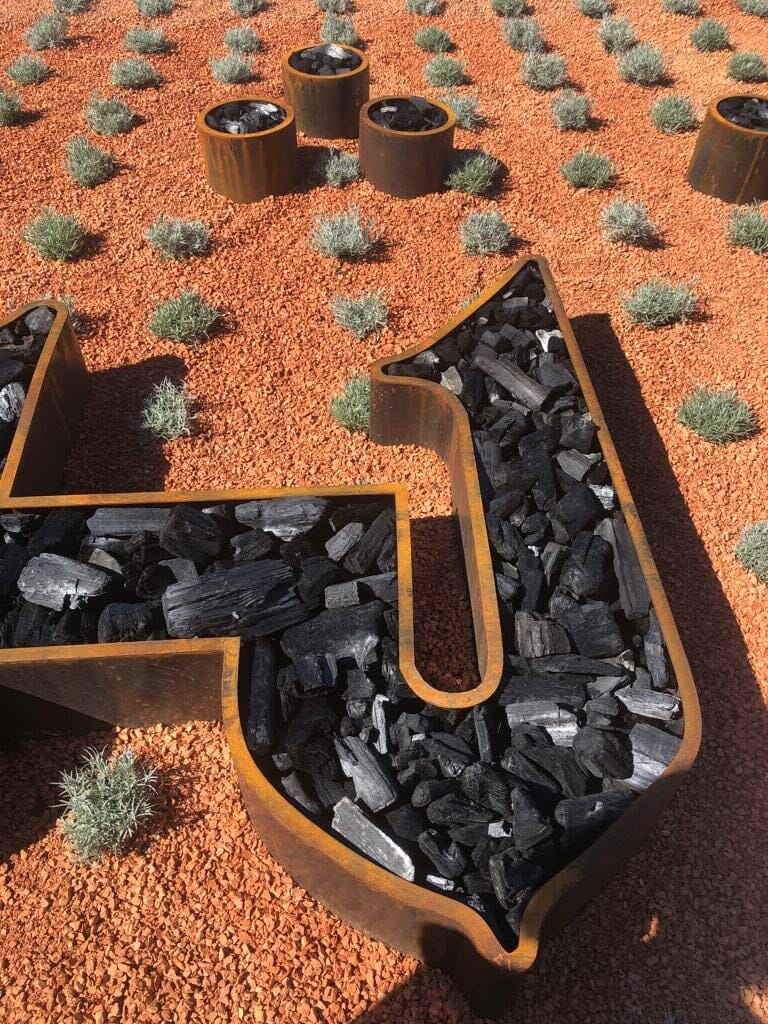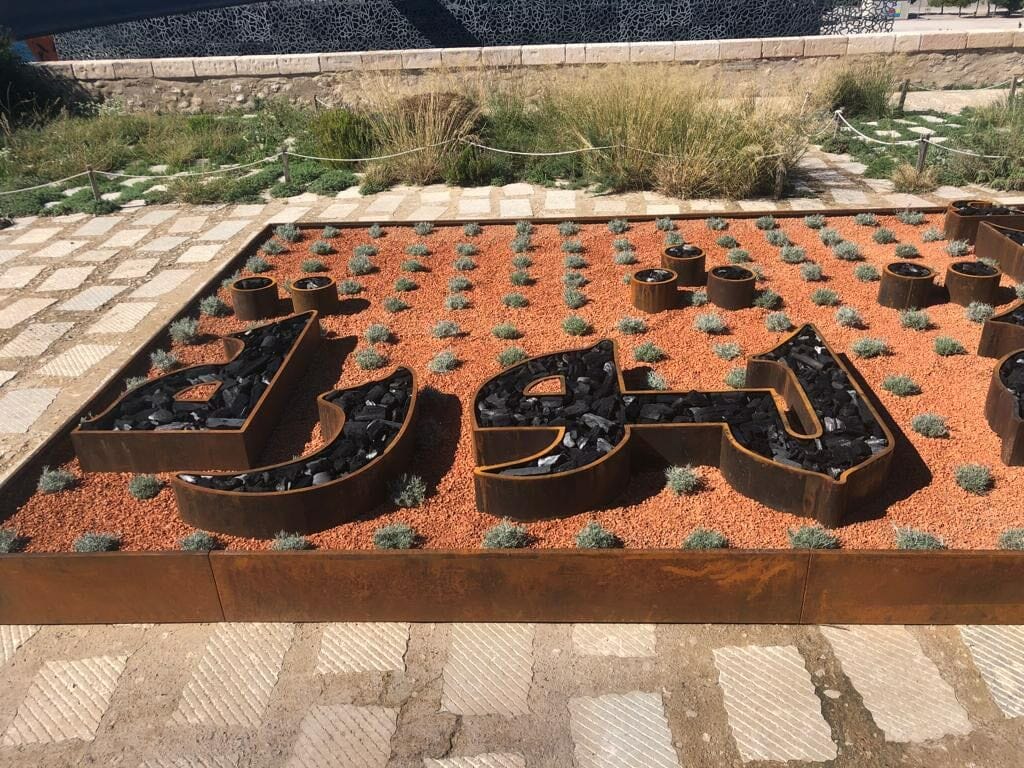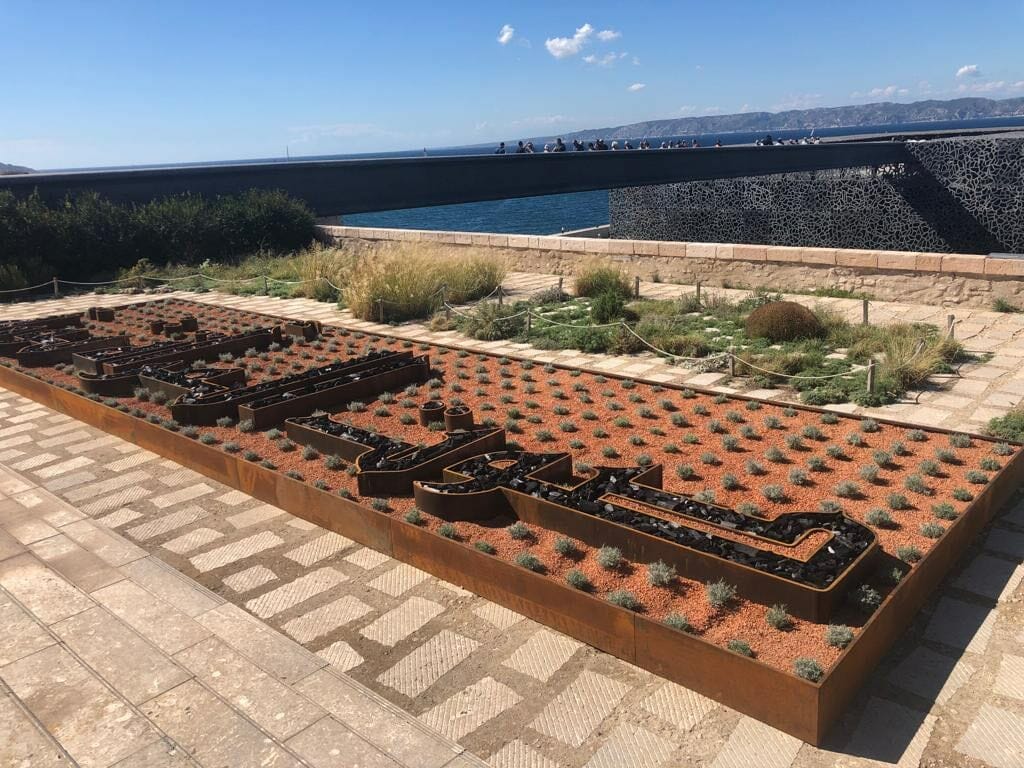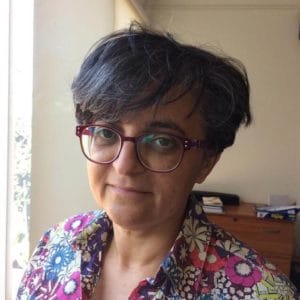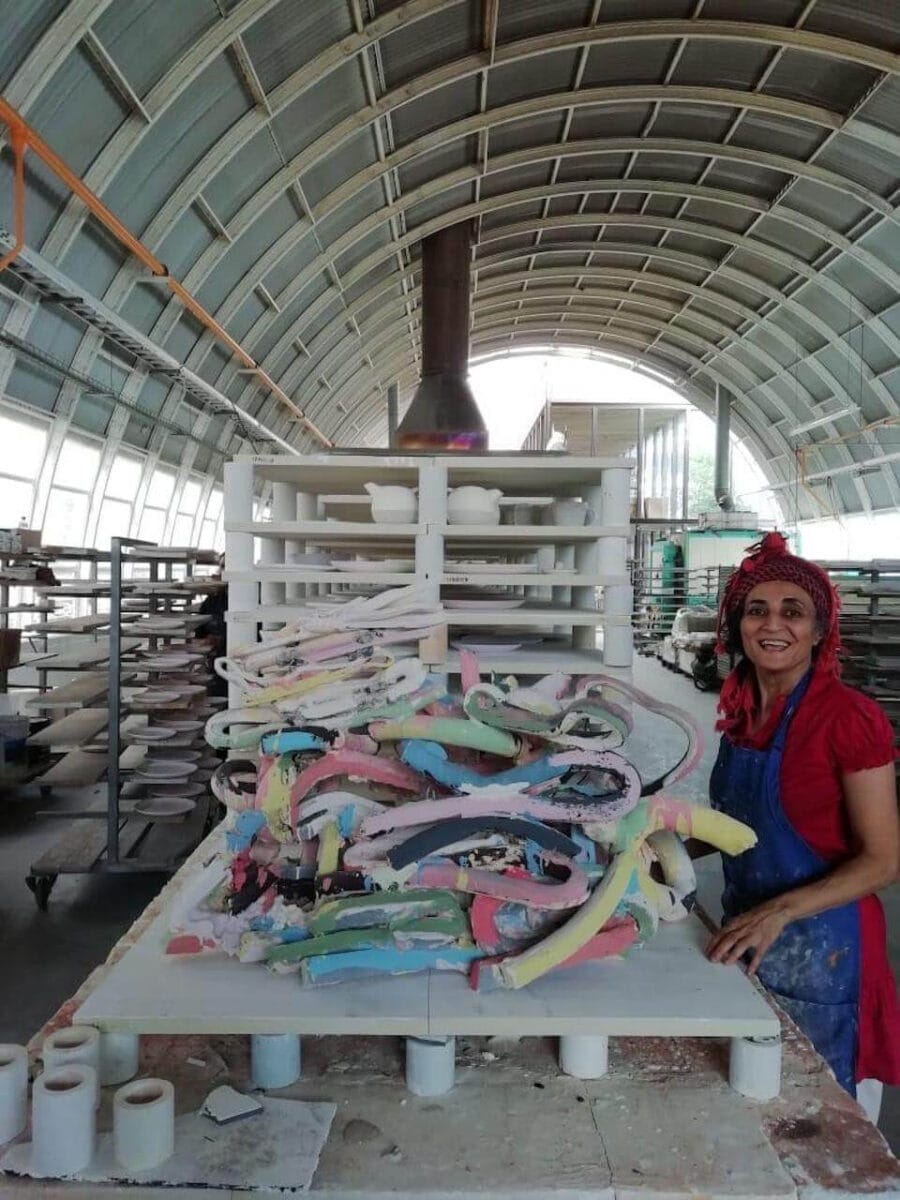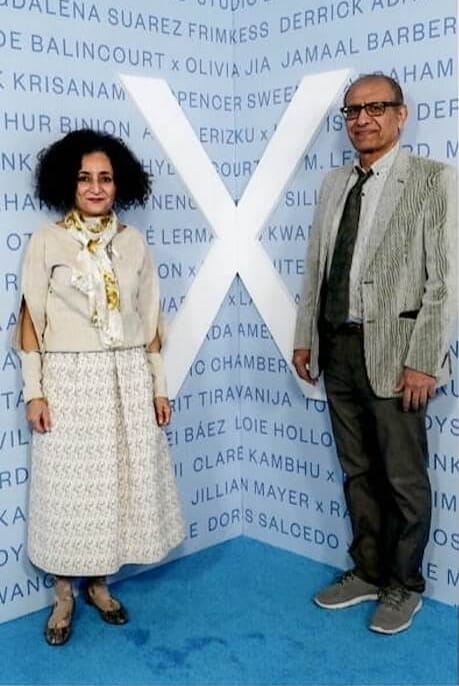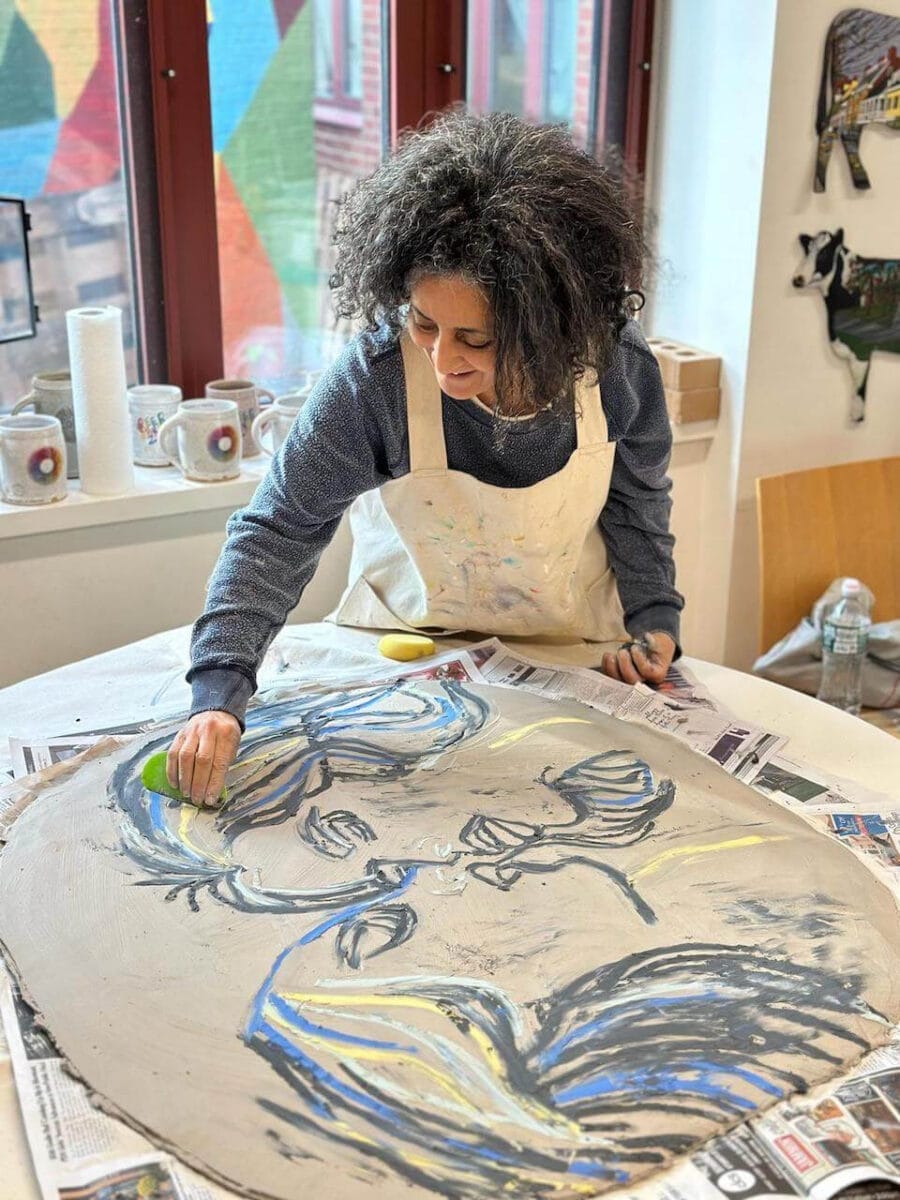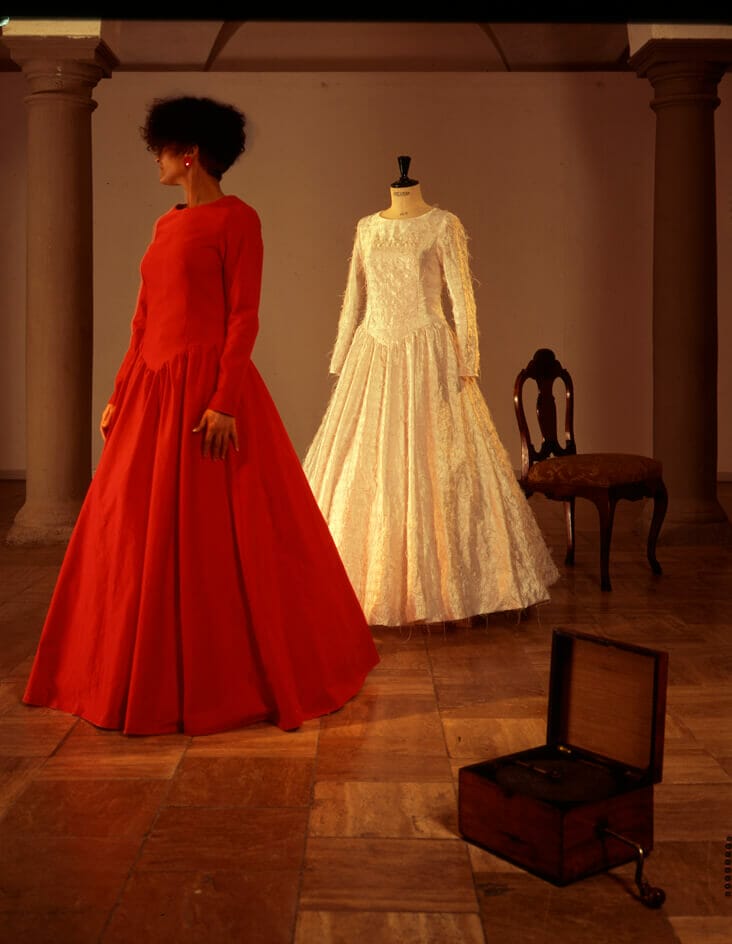Though known primarily for her embroidered painting, ceramics, and stainless steel and bronze sculptures, Ghada Amer has been making garden sculptures since 1997, that is shortly after she began her artistic journey (1990).
Ghada Amer’s Newest Garden Installation
For her retrospective at the MUCEM in Marseille (France), Ghada Amer has installed a new garden using for the first time Arabic characters. “A Woman’s Voice is Revolution” is undoubtedly one of the artist’s most politically charged garden installations.
A Woman’s Voice is Shameful: The Threat of Women’s Voice

With this new work, Ghada Amer challenges directly the well-known Arabic proverb “A Woman’s Voice is shameful.” This proverb is based upon a much disputed hadith (the tradition of the sayings of the Prophet) reported by respected Muslim jurist Al-Bukhari (ca. 808-870 CE) that states that people who entrust their affairs to women will never prosper.
For centuries, this hadith has been strategically used by some politicians and orthodox theologians to denounce women’s voices for being a source of social and political upheaval and chaos. In this regard, a woman’s voice is like her body or her hair, present only to be hidden from earshot, from eyesight. If a woman’s body is to be covered with a veil, according to some conservative Muslims, a woman’s voice is to be silenced for it is scandalous, reprehensible. It introduces religious confusion, social discord and political strife. Listening to a woman’s voice, especially when soft, tempts men, potentially making them ritually impure and splits the community.
A Woman’s Voice is Revolution: Calling for Women’s Voice is tantamount to calling for their Rights
By strategically changing just one letter in that proverb, Ghada Amer subverts its message and erases the shame associated with women’s voices. She transforms that shame into an empowering feminist slogan, one that she saw displayed and repeated everywhere during the 2011 Arab Spring. That slogan was officially affirmed in the Statement of the Coalition of Women with the Revolution on the 2013 International Women’s Day: A Woman’s Voice is Revolution. What a difference one letter makes!

Women’s Voice in History
One ought not assume that the silencing of women is just a “Muslim or Arab problem.” Throughout history and around the world, women have struggled to make their voices heard and feminine authority has consistently been demoted while power has been gendered male. When they published, women either signed anonymously or under a pseudonym. Even when literacy rates for women increased in the eighteenth century, women were regularly dismissed and few could make a living from their writings. It has often been observed for example that while the Salons of the Enlightenment were run by women, these were never venues where they spoke or shared their own work, revealing once more the extent to which women were silent and silenced in cultural, intellectual, social and political arenas.
Coal Meets Flowers: The Resilience of Women
The structure and letters in this garden installation are made of steel. The Arabic letters are filled with coal, a direct reference to the tradition of burning witches and thus of silencing subversive women in general. The entire space around the three Arabic words is filled with plants. The decision to use the immortal, a medicinal Mediterranean plant with small yellow flowers that bloom each Spring, is a reminder of the resilience and perseverance of women in the face of religious extremism, sexism, violence, and patriarchy.
“A Woman’s Voice is Revolution” is made specifically for Ghada Amer’s retrospective show in the city of Marseille, France. It opens on 17 September 2022 at Fort Saint Jean in the MUCEM and will remain on view until 16 April 2023.
